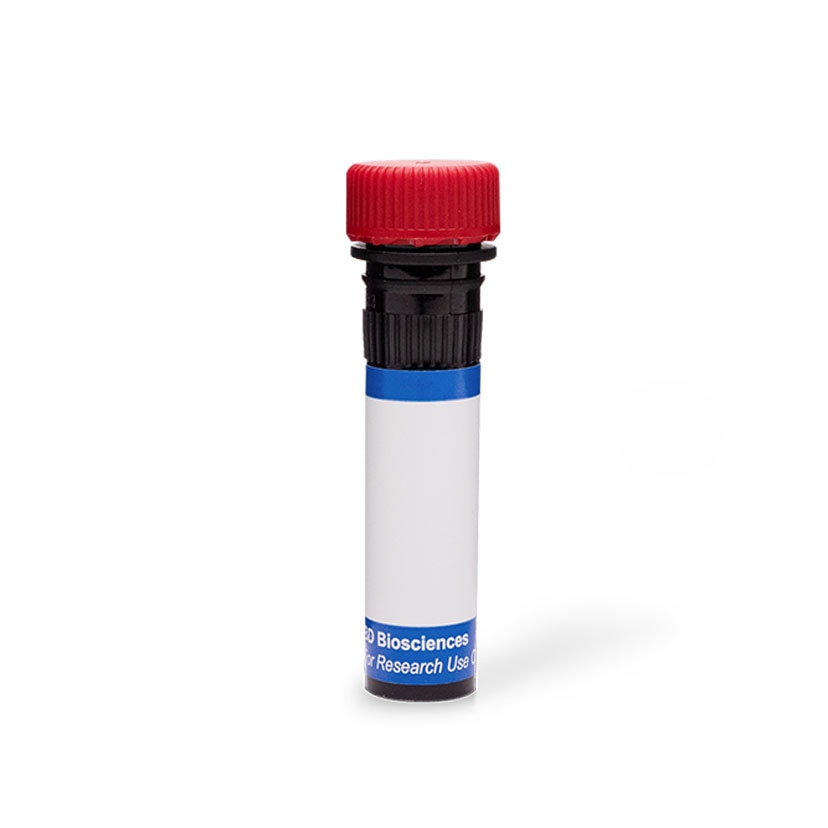Interferon regulatory factor 7 (IRF-7) is a transcription factor that regulates anti-viral defenses by controlling the induction of type-I interferon (IFN) responses. IRF-7 expression is induced in lymphoid cells by virus infection, as well as by IFN, lipopolysaccharide, and TNF-α. IRF-7 responses are initiated by Toll-like receptors (TLR) or the cytoplasmic protein retinoic acid inducible gene I (RIG-I). Upon TLR activation, it forms cytoplasmic complexes with MyD88, an adaptor in the TLR signaling pathways. The TLR-dependent and RIG-I-dependent pathways activate kinases, such as IKK-ε and TBK1, that phosphorylate IRF-7 and induce movement of IRF-7-containing complexes to the nucleus, where it preferentially activates IFN-α promoters.
The K47-671 monoclonal antibody recognizes human IRF-7 phosphorylated at serines 477 and 479 (pS477/pS479). Our in-house testing is performed on a cell line that has been co-transfected with TBK1 and IRF-7. Phosphorylation of IRF-7 in the transfectants requires virus infection or over-expression of a signaling molecule of the RIG-I pathway, such as TBK1. Phosphorylation of endogenous IRF-7 in untransfected cells has not yet been detected. We confirmed that mAb K47-671 does not cross-react with TBK1 by Western blot analysis using the purified antibody.




